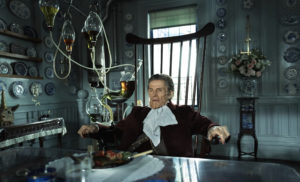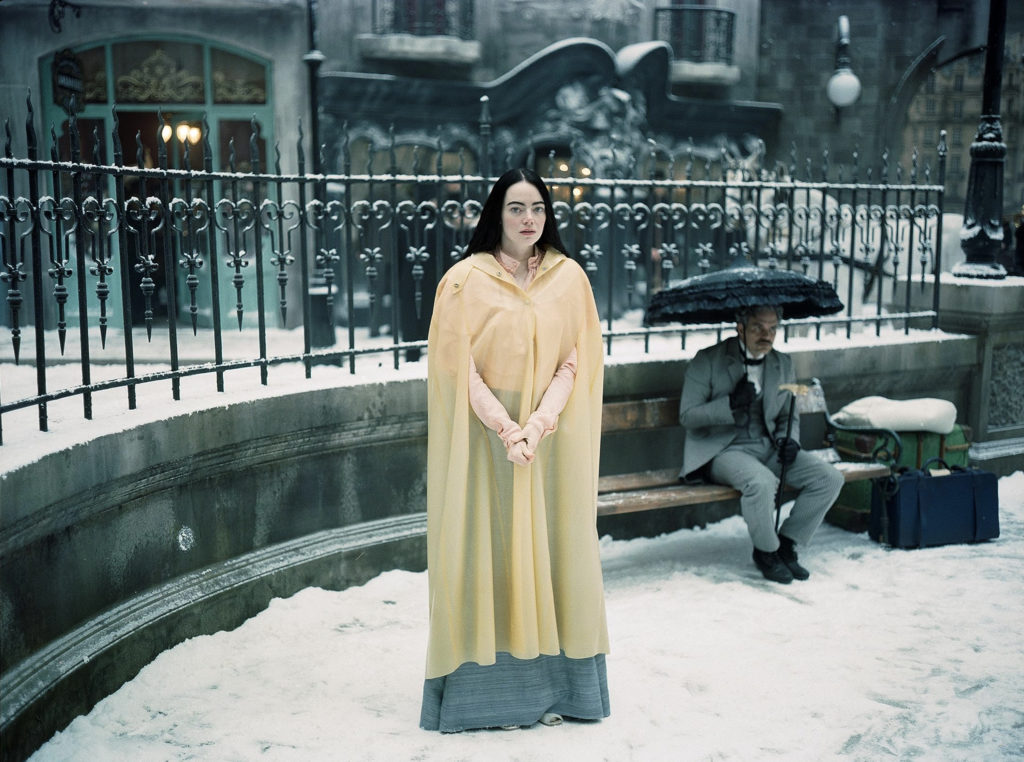Often in the English language there are words mistaken for synonyms while nestling adjacent or even opposed to one another. For instance, anyone who has ever had their heart broken quickly learns the chasm between “affection” and “love.” Many more then have their heart’s shards snapped further by a waiter conflating the merits of Coca-Cola and Pepsi.
But more notable and more relevant to this review is the difference between “provocative” and “interesting.” It’s easy to reach the former, and even easier to mistake it for an achievement.
Thus is the quandary with Yorgos Lanthimos’s “Poor Things,” fresh off its Golden Globes wins earlier this month for Best Comedy and Best Actress in a Comedy for Emma Stone.
Stone plays Bella, a Victorian woman resurrected from the dead by mad scientist Dr. Godwin Baxter, played by Willem Dafoe. Though perhaps resurrection is again one of those adjacent but conflicting synonyms: When Godwin finds her floating under the bridge, he places the brain of her unborn child into her dead mother’s skull. I’m sure the more squeamish have tapped out at that alone. But that is what they want, and we cannot let them win. Who “they” and “we” are, and what indeed what “winning” entails, is irrelevant to the mission at hand.
Bella is quite literally a child trapped inside an adult woman’s body. She staggers about like a marionette at the mercy of a drunk puppeteer, and in true toddler fashion makes up for her limited vocabulary in violence with the words she does possess. Unable to pronounce his full name, she calls her creator “God.” It’s the most blatant of the blunt symbolism throughout, which I’m sure Lanthimos would insist is tongue-in-cheek. But it’s ironic turtles all the way down, and at the bottom of the stack is still a character called God.
Bella is cared for by Godwin’s kindly assistant Max (Ramy Youssef), who with Godwin’s permission, bordering on insistence, proposes marriage. But even childlike Bella recognizes it is “God’s” attempt to keep her at home away from a wider world which he fears and she longs for.

(While allowing for curiosity, I think the film overestimates a child’s mind for new experience. Children are natural reactionaries; ask them to sample new food other than chicken fingers and they’ll respond with all the liberality of a Russian czar.)
With his permission she instead runs off with Duncan Wedderburn (Mark Ruffalo.) A caddish lawyer (at the risk of sounding redundant) he takes advantage of Bella’s naiveté and whisks her off on a lover’s holiday. Bella’s accelerated mental progression now finds her in the thick of adolescence, so if Duncan uses her, she is an enthusiastic accomplice.
But we are back again to the great divide of provocation and interest. In the longest stretch of the film we are shown in great detail the particulars of Bella’s sexual awakening, sequences that most readers of this site would find lewd and indecent.
But throughout all this extracurricular activity my eyes averted from the screen not from prudishness but boredom. Sexuality is indeed part of growing up, but it isn’t the skeleton key of adulthood. Lanthimos takes Bella into the wider world, but his focus on this one aspect of her person shrinks it. She wants to see the pyramids, but she must settle for the ceiling.
It even puts him at odds with his own thesis. Bella is an Edenic creature, her innocence putting her at odds with a fallen society. It would certainly explain her comfort with nudity. She eats sloppily, dances merrily, and lacks the patience for innuendo in polite conversation. Most importantly, she doesn’t fathom the absurd strictures her society places on women, and like most children ignores what she doesn’t understand.
But Lanthimos groups her freewheeling sexual liberation in with her burgeoning feminism, a pairing that fell out of fashion somewhere between Rocky II and Rocky IV. It’s a retrograde feminism, not respecting women in all their baffling facets but to the extent to which they please the drooling patriarchy.
In fairness, the film recognizes the abuses. For all his talk of spurning convention, Duncan grows more possessive the wider Bella’s perspective expands. He says he wants to show her the world, but we realize along with her that a narcissist thinks the world ends at his sightline. He tricks her onto a cruise ship where she can’t leave him, but that is only prolonging the inevitable. Rid of his dead weight, she later takes up a brief residency in a brothel, a rose-colored vignette on sex work where her sex positivity goes over like gangbusters. After her adventures she finally returns and is reconciled to her fiancé and “God,” her wild oats sufficiently sown.
Perhaps as a Catholic I should endorse such a tidy resolution, but I have never found myself more offended at a film coming full circle. It meant all its provocations were for nothing, even its postures of defiance ultimately subjugated to conventional mores. What we watched for the last two hours was not a young woman bucking the absurdities of our society, but a sorority girl on a gap year abroad.
In other words, “Poor Things” is about controlled rebellion, the cinematic equivalent of Woodstock hippies who went on to work for weapon manufacturers. I have more genuine respect for sticking to a principle, even in violation of my own, than dabbling in revolution only to embrace the cog. God can forgive any sins, but I can’t forgive you for wasting my time.
Editor’s note: “Poor Things” is rated R for strong and pervasive sexual content, graphic nudity, disturbing material, gore, and language.

